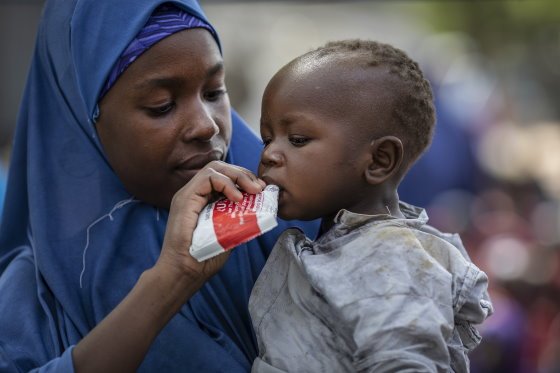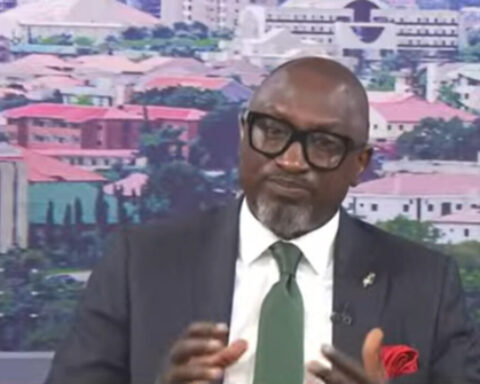By Tiamiyu Prudence Arobani
The UN World Food Programme (WFP) says it might be compelled to suspend all emergency food and nutrition aid for 1.3 million people in northeast Nigeria at the end of July.
WFP Regional Director for West and Central Africa, Margot van der Velden, disclosed this on Wednesday while briefing UN Correspondents about the humanitarian situation in Nigeria.
The official of the UN global food body said it urgently needed 130 million dollars to sustain emergency food and nutrition operations in Northeast Nigeria in the next six months.
“In Nigeria today, just to give you an impression, 31 million people are facing acute food insecurity and are in need of life saving assistance.
“And to put this in perspective, this is equivalent to the entire population of Texas (in the U.S.) going hungry.
“However, due to the severe funding cuts that the World Food Programme is facing, we have exhausted our food and nutrition resources,” she said.
Velden added that while WFP has been able to hold hunger at bay across northern Nigeria in the first half of 2025, funding shortfalls were jeopardising such efforts.
She expressed regret that life-saving programmes could stop by the end of July due to lack of immediate funding.
“And at the beginning of August, we will have to face the heartbreaking reality of having to suspend our operations for the populations in northeast Nigeria.
“And so our teams will have to tell the population that they no longer will receive aid, not because there is no need, but because there are no resources for that assistance,
“So, more than 1.3 million people including 300, 000 infants could lose life-saving food assistance and nutritional support,” she explained.
According to her, vulnerable people could be left without food assistance as WFP’s food and nutrition stocks had been completely exhausted, with its last supplies leaving warehouses in early July.
With life-saving assistance set to end after the current round of distributions is completed, Velden said millions of vulnerable people could face impossible choices.
The WFP official added that the vulnerable will have to endure increasingly severe hunger, migrate or even risk possible exploitation by extremist groups in the region
She again expressed regret that the critical funding shortfalls came at a time of escalating violence and record levels of hunger.
As mass displacement strains the already limited resources and pushes communities to the brink, Velden said the lack of emergency food assistance risked increasing recruitment by the extremist groups.
“When emergency assistance ends, many will migrate in search of food and shelter.
“Others will adopt negative coping mechanisms, including potentially joining insurgent groups, to survive.
“Without immediate funds, over 150 WFP-supported nutrition clinics will close, ending potentially life-saving treatment for more than 300,000 children,” she stressed.
Velden commended the Nigerian government as well as the Borno state government for their support aimed at addressing the humanitarian situation in the northeast.
“I think the government of Nigeria, as well as the governor in Borno state have a very clear vision of a response and a plan,” she said.
She also commended the government for addressing the urgent humanitarian needs and finding longer term solutions, including the re-integration of some of the repentant fighters (belonging to extremist groups).
“I also would like to say that the government of Nigeria is the largest financier of this emergency response now in the northeast of Nigeria.
“But I think the scale and the complexities are such that we are all together with the government’s counterparts and trying to explore new avenues of funding.
“But also maybe of programmes and solutions that can bring hope, I would say, and stability to a very complex environment at the moment,” Velden
Follow us on all social media platforms @dailyquery for news and analyses around the globe.



























